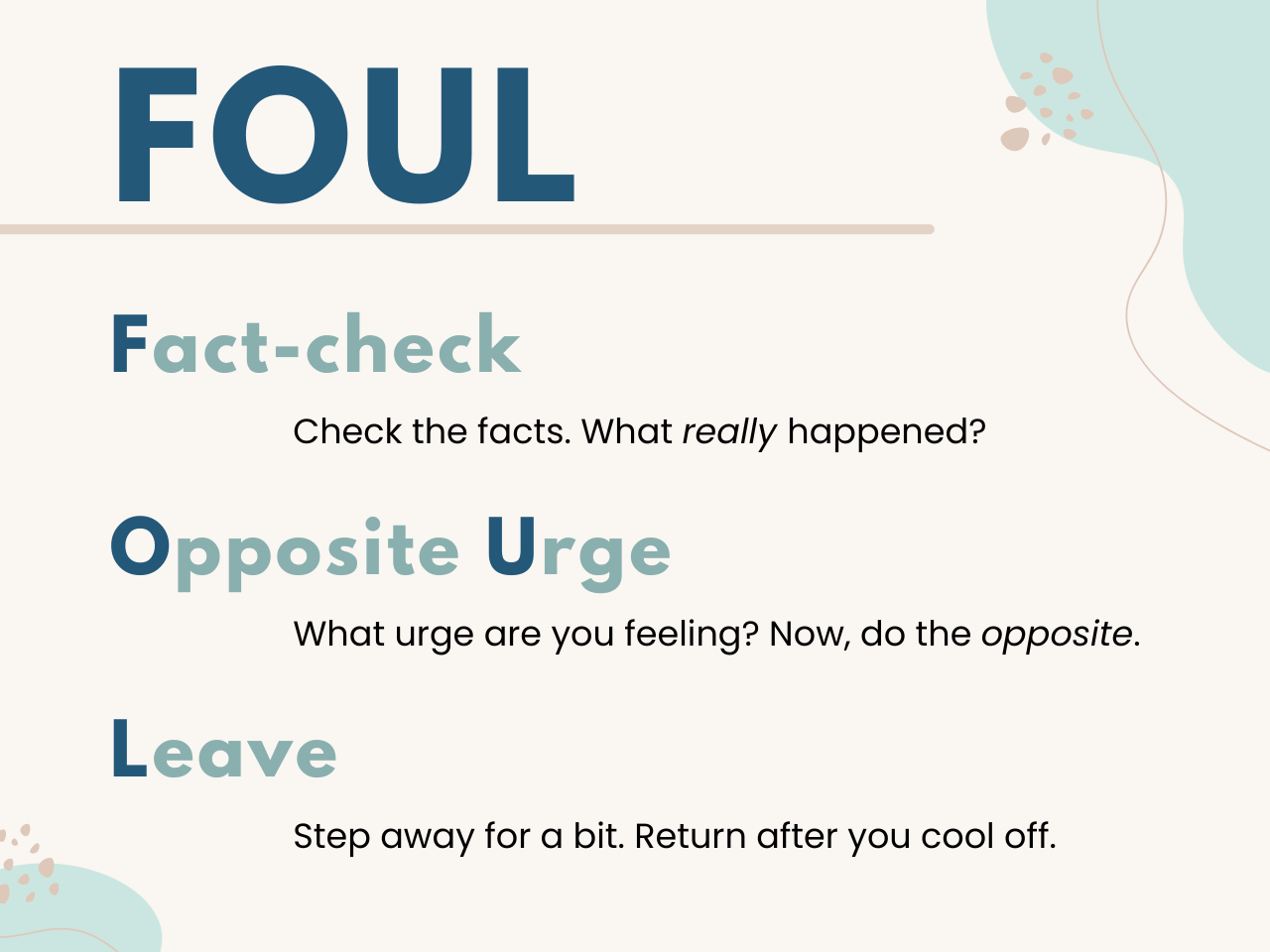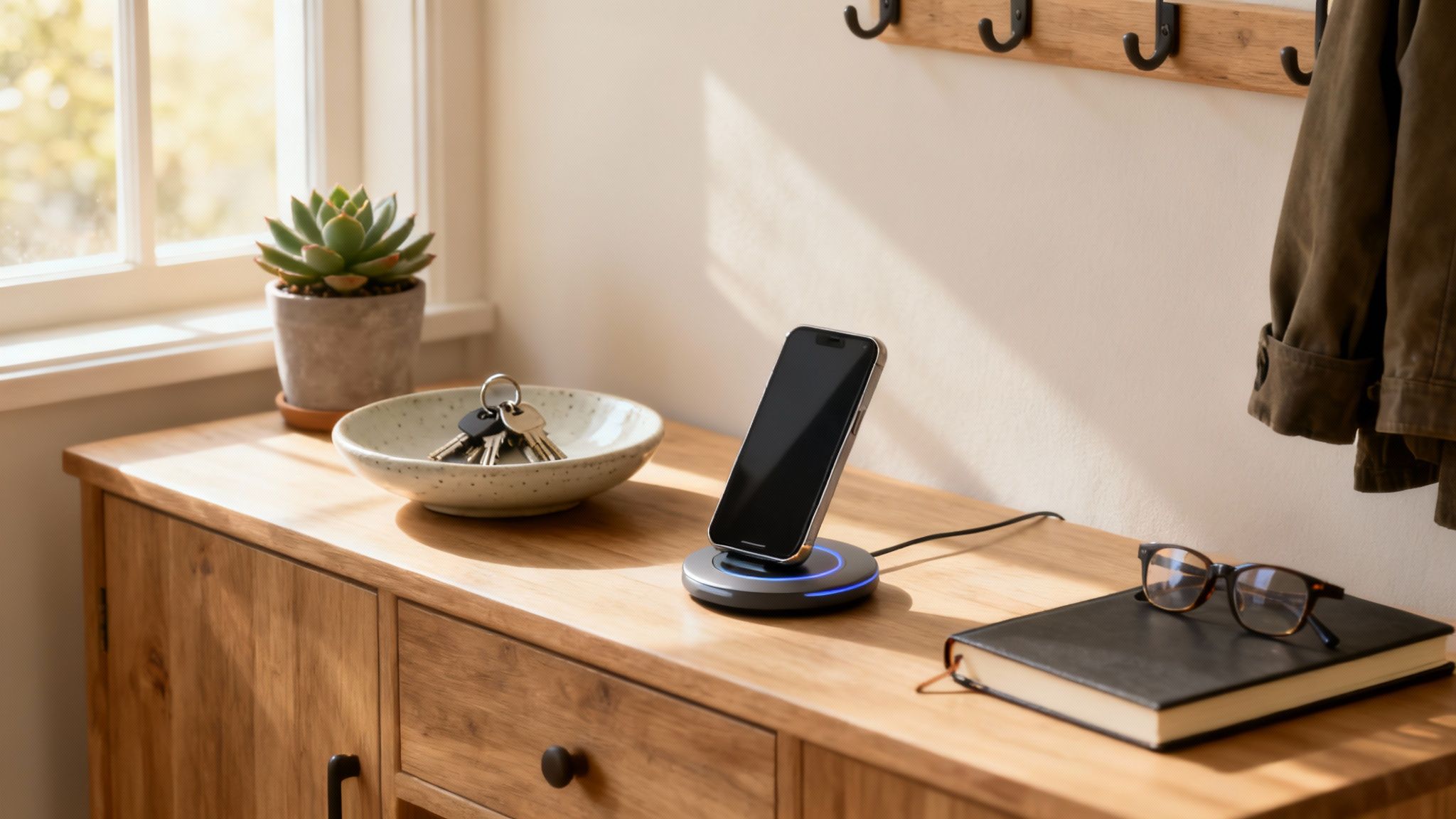ADHDers often struggle with managing intense emotions. While this can be endearing when they're displaying excitement or happiness, an outburst of rage is an entirely different matter. In the aftermath, we can find ourselves at least embarrassed at losing our temper about a minor inconvenience, but often it can lead to intense feelings of shame and regret for having hurt our loved ones.
Anger isn't a 'bad' or 'wrong' emotion; it can be a perfectly healthy response to specific events. I credit some of my best moments to my ADHD anger and impulsivity (usually involving defending someone else in an unjust situation). However, when we're stressed or feel rejected, we can quickly become triggered and react with anger inappropriate to the problem.
Let's look at the link between anger and ADHD and how the F.O.U.L. method can help you prevent angry outbursts…

Too long; didn't read
- ADHDers can be prone to anger due to different neuroanatomy and life experiences, causing irritability.
- Anger is a perfectly healthy emotion depending on the situation. However, learning to rein in our anger when overwhelmed is vital for our relationships.
- The F.O.U.L. method is a helpful anger management tool.
It stands for: Fact check, Opposite Urge, Leave
ADHD and anger
Emotional dysregulation
Attention-deficit/hyperactivity disorder (ADHD) is a neurodevelopmental condition characterized by inattention, impulsivity, and hyperactivity. Of course, that only describes a small portion of the lived experience of ADHDers.
Even though it's not part of the diagnostic criteria in the DSM-5, up to 70% of adults with ADHD report significant challenges with regulating their emotions.1 Emotional dysregulation isn't limited to ADHD.
Still, studies show that it occurs in ADHDers without other comorbidities, suggesting that it may be a core ADHD symptom rather than an associated feature.2
Why are ADHDers prone to anger?
Neuroanatomy
The main reason we struggle to regulate our emotions—including anger—is structural differences in the brain.
Research suggests that the 'bottom-up' regulatory structures, such as the amygdala, and the 'top-down' regulation mechanisms, such as the prefrontal cortex, have different activation and connectivity patterns than those of neurotypical people.3
Life experiences
ADHD also predisposes us to negative experiences that can lead to developing rejection sensitive dysphoria (RSD). Anger is a common defense mechanism against (perceived) rejection and criticism.
Many people diagnosed later in life are likely to have at least one undiagnosed ADHD parent who themselves may have had anger management issues. Trauma and adverse childhood experiences (ACEs) significantly contribute to anger issues.4
The frustration experienced by many over their ADHD struggles, such as missing deadlines, task avoidance, or forgetfulness, can lead to higher irritability and sudden bursts of anger.
The F.O.U.L. method
The F.O.U.L. method helps you respond to the anger bubbling up inside you. It can help you slow down enough to prevent an angry outburst you might later regret.
F.O.U.L. is an acronym that stands for:

F - Fact Check
Ask yourself: What really happened? What did the other person mean? What's hiding behind my anger? Is my response appropriate?
Often when our anger flares up, it can be because we don't have all the facts and have rapidly filled the gaps with our assumptions. Practicing distinguishing between the facts and your interpretations can function as a buffer. It separates your immediate emotional response from acting on your feelings.
OU - Opposite Urge
What urges do you feel when you're angry? What could the opposite of that be?
When I'm criticized, I reflexively feel the urge to defend myself or blame the other person. (Which never really helps, does it?) However, the opposite urge could be acknowledging their point and not immediately retorting with a harsh comment.
If your urge is to yell or say something hurtful in response to an insult or dismissal, you could ask for clarification instead: "I'm not sure I understand you. Can you explain what you meant by X?"
L - Leave
Walk away and give yourself a chance to calm down. When our anger has already flared up, it's difficult to respond rationally as the feeling can be incredibly overpowering. Once the fight-or-flight response is triggered, we may need to walk off the adrenaline before returning to deal with the situation with a cooler head.

Final thoughts
As someone with ADHD, I know that managing intense emotions—particularly anger—can be a real challenge. But it's not just me; most adults with ADHD struggle with emotional dysregulation. It's important to remember that anger is a healthy emotion—it's how we manage it that matters.
The F.O.U.L. method can help with anger management by fact-checking, figuring out the opposite reaction, and leaving. This method allows me slow down and think before acting on my anger. It's not a magic solution, but it's a good start.
-
Sources
1 BMC Psychiatry | Emotion dysregulation in adults with attention deficit hyperactivity disorder: a meta-analysis
2 Journal of Affective Disorders (JAD) | Emotional lability, comorbidity and impairment in adults with attention-deficit hyperactivity disorder
3 The American Journal of Psychiatry (AJP) | Emotional dysregulation and Attention-Deficit/Hyperactivity Disorder
4 CNS Spectrums | Prevalence and correlates of anger in the community: results from a national survey






